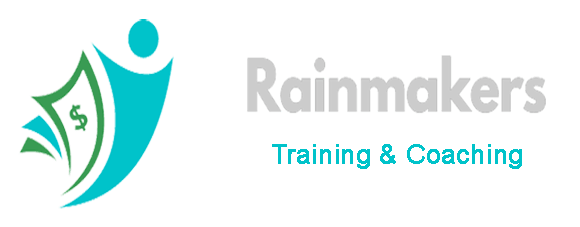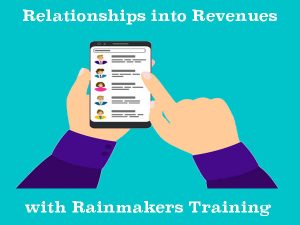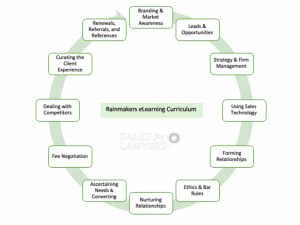Get the Most from Coaches and Trainers
If you have business development responsibility at your firm, you may worry whether you’re going about it the right way and what you could be doing better. You may even wonder whether you should invest in business development training and/or coaching. Here are 10 instances where proper guidance can improve your business development outcomes in 2023.
1. You work in a business development role at a firm but have never had business development training.
In your case, business development is literally your job. In-house business development roles have become commonplace only in the past three-to-five years. Business development training tailored to the legal profession is an even more recent occurrence. Therefore, many in your position are making it up as they go.
However, consider how much more confident you feel when you know what you’re doing compared to when you are less certain. Do you also perform better when you are knowledgeable and prepared?
2. Your clients don’t consult you until everything has been decided and they need deal documents drafted.
At first blush, you may be fine with not being included until the end. You’re satisfied that clients are calling you rather than another attorney. In addition, you may wonder what you could contribute early on.
The answer is: advice. If you aren’t notified until after a verbal agreement has been reached, you’re missing out on advisory revenues. With business development training, you learn how to condition your clients to call you when they are brainstorming—and to pay you for participating in their deliberative processes.
3. Your peers with the same pedigree and skillset bring in more business than you.
You may believe their business development prowess is due to their having relatives in positions of power. Sometimes, that is the case. However, you needn’t bow out of business development simply because you weren’t born with a silver spoon in your mouth.
You learn to cultivate and monetize your relationships with business development training. This know-how can level the playing field.
4. Your clients sometimes pick your brain and then don’t engage you.
Your clients aren’t necessarily trying to take advantage of you. It’s just that you’re spilling your guts—perhaps to prove your knowledge. The result is you become an unpaid consultant.
With business development training, you learn to control the client consultation. You stop telling a client or prospect everything you know about a topic. Such behavior invites them to take your information and use it to do the work internally.
5. Your firm made you a non-equity partner.
Your firm’s leadership would not have made this decision if they didn’t think it was in the firm’s best interests. They believe your sole value is your subject-matter expertise, and they promote you as such. They have no incentive to hand out equity to anyone who does not warrant it.
Business development training puts you on the path to develop the firm’s clients into sources of renewals, referrals, and references. Firm leadership will be thrilled with your contributions to revenues and profits. Your relationships with corporate buyers will then command equity in your firm.
6. You have not successfully incorporated legal analytics into business development pursuits.
Information matters—if you know how to use it. Your peers are likely research subscribers (e.g., Bloomberg Law), same as you. Therefore, they have access to the same tools. However, that doesn’t mean you can’t use the news, legal analytics, and business intelligence at your fingertips to a competitive advantage.
Business development training teaches how to utilize data in pitches without developing diarrhea of the mouth. Most lawyers produce voluminous slides or lengthy written proposals detailing important data. Presenting information is better than doing nothing. So, if your peers are not subscribers, you have an informational advantage.
Still, weaving data points into a client consultation is significantly more effective than merely presenting the data. This technique requires practice though. Business development training provides exactly that, an opportunity to apply data in prospecting and conversion situations until it becomes a habit.
7. You generate many leads but less than one-third of them would make good clients.
This is an issue that occurs more frequently with attorneys in smaller firms though some larger firm attorneys also experience it. You may have a knack for networking. However, your networking activity is unfocused. You’re collecting everyone as contacts. Your thinking is: perhaps they’ll pan out someday.
Only a tiny percentage of such contacts ever will result in a business development opportunity. Therefore, this approach is the “get lucky sales method” like buying lottery tickets and hoping to hit it big.
By comparison, with proper training, your engagement with third parties becomes more strategic. You’ll begin to attract contacts who are predisposed to doing business with you.
8. Sometimes the reverse situation applies, you know how to close a deal but have difficulty attracting enough prospects or leads.
If you fear you’ll have to become a social butterfly to get clients, that fear is misplaced. There are dozens of lead generation tools. Most do not require that you spend much time away from your family to be successful. Business development training helps you choose the best lead generation tools for your personality and your firm.
9. Clients sometimes try to get you to reduce your fee.
If a client is haggling with you, it usually is not really about your price. It’s that they don’t see sufficient value to justify that price.
The most important lesson you should learn from any business development course is how to frame your value proposition. If your value proposition is clear and on point, your price won’t matter.
10. Less than two-thirds of your new matters are from existing clients.
Prospecting (or lead generation) is something you’re supposed to do once and not have to do again unless there is a material change in your circumstances. So, if you are still prospecting after two years and you haven’t switched practice groups or moved to a new city, you need to redesign the client experience that you deliver.
Business development training helps you develop a process or signature service which leads to greater client satisfaction and deeper client relationships. Those buyers send you renewals and referrals and serve as your references when you’re pursuing “new logos” or prospects with whom you’ve never worked.
The “3 Rs” or “Renewals, Referrals, and References” are the endgame of business development activity. They ensure that you never have to sell again.
Training vs. Coaching
Allow me to answer one final question. What if you already have a business development coach? Do you still need training? We did an entire post comparing the duties of a trainer and a coach. However, let me summarize the difference here.
The purpose of a coach is to reinforce existing skills. A coach helps you stay focused and motivated to achieve your goals. Coaches also help you troubleshoot when you inevitably find yourself stumped by something that occurred in the field.
However, you should not rely on a coach to teach you business development. Your progress would resemble a leaky bucket. As soon as the coach plugged one hole, another leak would spring. For example, once the coach taught you lead generation, you’d expect results. But, not having learned how to nurture relationships, you likely would not win as much business as you’d hoped. The lack of consistent results might frustrate you from further business development activity.
The fact is, with coaching alone, you would need at least five years (not to mention incredibly thick skin) to gradually learn business development. By comparison, business development training reinforced by a good coach should deliver consistent results in one to two years.
About the Author. Shavon Jones, Esq., LL.M. is Chief Content Officer at Sales for Lawyers, a law firm consultancy. She previously served in a joint practitioner-business development role at a top-ranked public finance legal firm. In her current role, Jones created the Rainmakers business development eLearning platform which offers a free trial. https://sales4lawyers.com/elearning.









Comments are closed